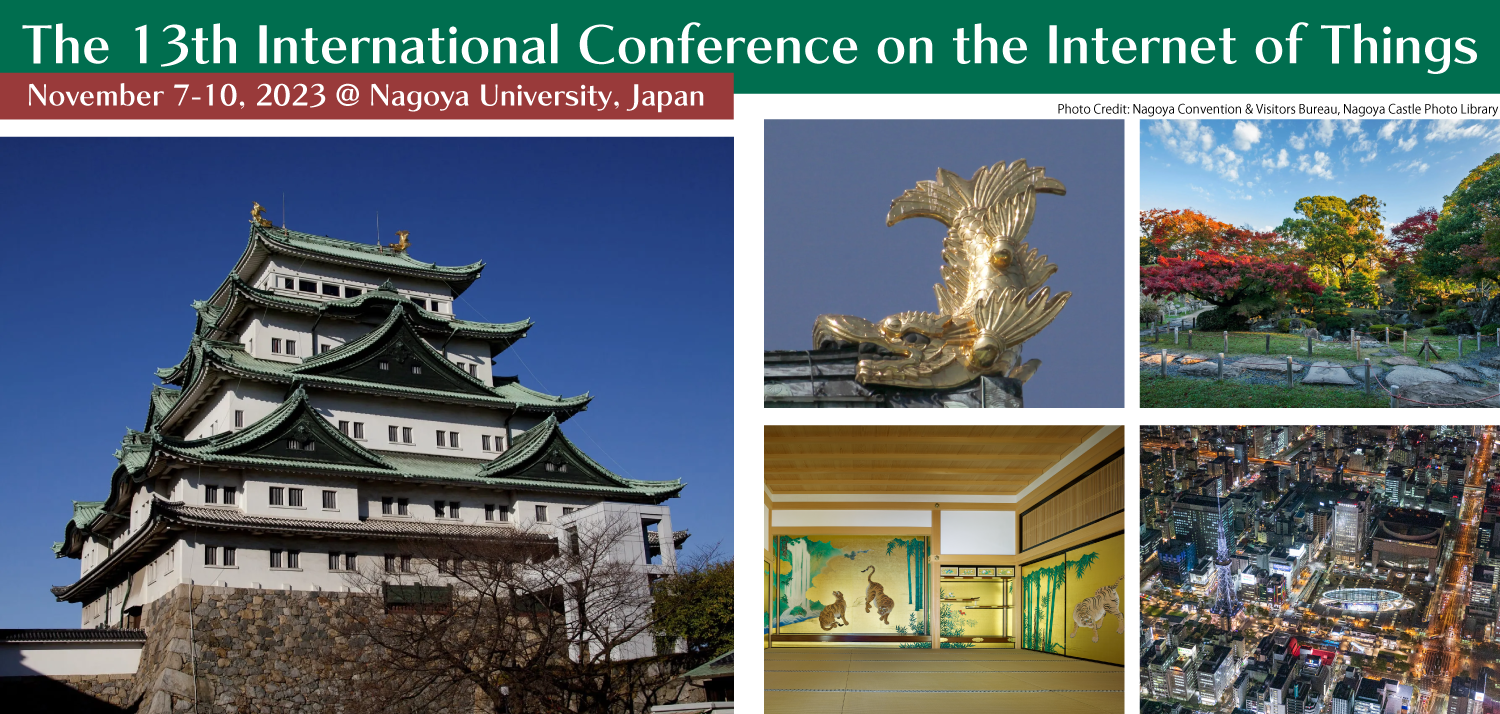This year’s IoT Conference has 43 workshops:
AccessIOT – Workshop on Integrating AI Technologies to Increase IoT Accessibility
https://sites.google.com/view/accessiot-workshop/home
Abstract – The proliferation of IoT systems embedded in both personal and shared objects has the potential to facilitate countless everyday tasks for individuals with disabilities. However, many IoT systems are not designed with accessibility in mind, thus often exacerbating disabled people’s difficulties rather than reducing them. Access needs are also extremely diverse across individuals and highly contextual, meaning that it is difficult for designers and developers to create systems that are universally accessible. The integration of novel human-centered AI architectures could successfully help to create systems that can match the available capabilities of individuals across disabilities and situations, by providing a flexible layer of distributed situational awareness, adapting the interaction modalities accordingly, as well as recognising which actions can be automated and which require direct input. Realizing the creation of AI-powered IoT systems able to adapt to users’ needs requires consideration of diverse aspects including agency negotiation, capability assessment, and interaction mediation. In this workshop, we promote exchange of cutting-edge research and discussions about practical implementations to improve theoretical knowledge and methodological approaches to leverage the power of AI to increase the accessibility of IoT systems.
[CANCEL] AQ-IoT – Intelligent and Trustworthy Internet of Things Systems: Architectures and Qualities
https://iotap.mau.se/aq-iot-2023/
Abstract – The system architecture design of intelligent and trustworthy Internet of Things (IoT) systems is a challenging task since, e.g. they are often large, data driven, distributed, dynamic, evolving, and heterogeneous. The first AQ-IoT workshop aims to bring together researchers and practitioners from several areas to investigate and discuss state of the art, principles, challenges, and approaches for addressing these issues about architectures, as well as appropriate qualities and metrics. The anticipated outcome of the workshop is a better understanding of the research field also through experience reports, identification of more specific research problems, initial solutions, and results.
Security and Safety for Intelligent Unmanned Autonomous Systems (SecIUAS)
https://seciuas2023.github.io/
Abstract – Recent advances in artificial intelligence, sensing, communication, computation and storage techniques have improved the way Unmanned Autonomous Systems (UAS) interact, exchange and process information. In recent years, Intelligent Unmanned Autonomous Systems (IUAS), such as unmanned vehicles, unmanned aerial vehicles (UAV) and robots, have emerged for various applications without surveillance by humans. Yet, the success, prosperity and advancement of these intelligent systems strongly depend on the security and safety of the cyber-physical devices, system software, and application software. These systems are prone to suffering from various security and safety issues, such as hardware defects, system and application vulnerabilities, network eavesdropping, side-channel attacks and so on. These successful attacks targeted the IUAS do not only affect the security of information but also the safety of the system, which may lead to the malfunction of systems with severe financial, environmental and health losses. The goal of the 2023 SecIUAS workshop is to bring together internationally leading academic and industrial researchers in an effort to identify and discuss the major technical challenges and recent results to meet the security and safety requirements of future IUAS applications in various fields.
The 1st International Workshop on Internet of Realities
https://iorws2023.klab.is.sci.toho-u.ac.jp/
Abstract – The evolution of VR (virtual reality) technologies offers communication and workspace platforms without limitations in time, space, and social attributes. IoT’s development turns cyberspace into a real-time digital twin, enabling the reflection of real-world information for predictions and simulations. However, as more real-world information is input into the information space through IoT, the risk of privacy leaks increases. The advancement of immersive technologies and haptic IoT devices intensifies their impact on individuals and the physical environment. To ensure a secure and enjoyable service, it is crucial to establish trust in the spaces and user entities within each reality and prioritize security and privacy protection through design. To address this problem, we propose our workshop to discuss the necessary challenges and technologies for achieving a Trusted Internet of Realities (IoR). The workshop aims to ensure the safety and reliability of individual realities from a design perspective and enable their interconnection for the development of diverse services. It will consider the close interaction and emerging threats in the physical space, both present and future, while taking into account the attributes of the spaces that constitute each reality and the user entities involved.
